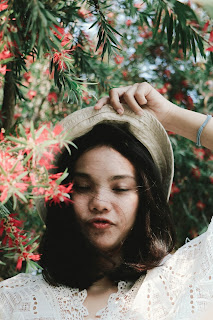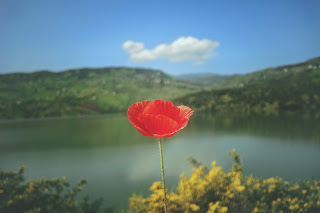Aromatherapy is Much More than Just Great Smells
As I continue my discussion on "what is Aromatherapy," my mind goes back to LONG TIME AGO, when the primitive humans first discovered that leaves, berries, roots and more made sick people better. Things found in nature was all these people had to eat and sometimes to make them better from sickness as well as to give them feelings of happiness or stimulation or excitement. There were no pharmacies carrying anything they could just run out and "buy." They had to be creative and make their own. As they looked around the earth for food and shelter, they also found ways to heal their bodies and minds using the plant life around them. Some even reported from those days have "spiritual" experiences using plants resources.
They would rub or burn aromatic plant materials to treat themselves, friends and family members with diseases or ailments. What else could they do? They had to use what was around them. And what was around them was meant for them to use for exactly as they used it. Mother nature provides us with all we need. Humans expand upon what is found in the environments around them.
If they felt the need to drive out an evil spirit they would use some form of incense to protect themselves. They soon found out what was breathed in through the nose was directly absorbed by the body and these things became important "healing agents" to the earliest civilizations on earth. I keep thinking this was exactly what the plants around them were suppose to do for them.
Aromatherapy is not just about something that smells good! It is much, much more than this. I remember telling my dentist just recently being interested in Aromatherapy. His answer was: "oh yeah, my wife diffuses every night, IT SMELLS GOOD."
Ancient Civilizations who were well known for their use of aromatic plants and extracts include: (1) The Egyptians (used balsams, perfumed oils, scented barks and resins for their medicines, to preserve their food, for their religious ceremonies as well as for embalming the dead); (2) the Romans; (3) the Greeks (historians believes the Greeks learned most of their aromatic knowledge from the Egyptians). Who actually made the bath houses in Rome, Italy so popular? The Romans, of course, as they made these places where people could use aromatic oils and other scented products to make them more beautiful and for good health. I suppose this is what evolved into our "spas" of today.
The 18th Century brought apothecaries into reality who had stills to produce essential oils, all progressively being used for beauty and health products. Meanwhile the growing field of medicine would eventually take medicine making out of the hands of the every day person considered to be "knowledgeable" about how to treat and/or heal the sick, but remember, at one time, "plants, essential oils and herbs" was all people had to beautify themselves and make medicines for themselves. The 19th century brought us the family physician, which continued to take medicine out of the hands of those who originally brought people most likely some great remedies for almost every human condition imaginable.
Written by: Connie Limon, Certified Aromatherapist, Level 1: Join my Facebook Group here:
https://www.facebook.com/groups/healthwellnessusingessentialoils/about/.
https://www.facebook.com/groups/healthwellnessusingessentialoils/about/.






Comments
Post a Comment